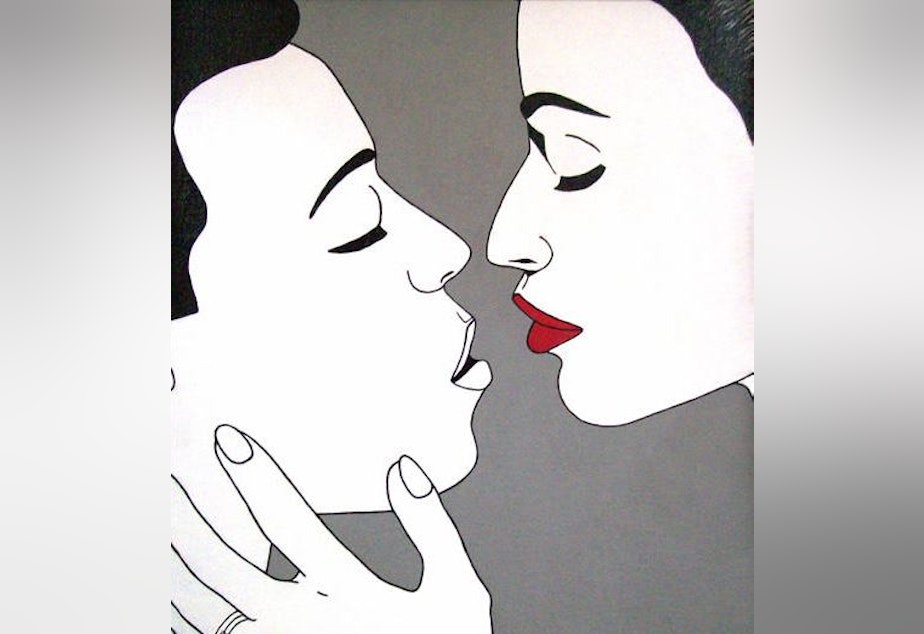What a ‘midlife reckoning’ usually looks like for women

Claire Dederer’s book “Love and Trouble: A Midlife Reckoning” is a memoir. But unlike “Wild” or “Eat, Pray, Love,” it’s not the kind of memoir where a woman of a certain age goes traipsing off into the unknown to start a new life.
“Most of us don’t do that,” Dederer told KUOW’s Bill Radke. “We stay. And that’s always what I am interested in writing about. What about the people who stay?”
Dederer’s memoir tells the story of how she stayed — in her marriage and in the rest of her life — despite finding herself in a midlife crisis that shook her very foundation. She recalled that it started when she was in her mid-forties, manifesting at once as fatigue and recklessness.
“It was just sort of like, I can’t do anymore,” said Dederer, who lived in North Seattle at the time. “I just sort of wanted to take to my bed, which is kind of ridiculous, but that’s what happened.”
She said that at the same time, she felt compelled to engage in “bad behaviors,” including drinking too much and having inappropriate friendships with men. (“Things that don’t happen to Phinney Ridge moms,” she said. “That’s not in the rulebook.”)
Sponsored
Dederer said that trying to construct an ideal life may have left her vulnerable to the despair that set in when she reached middle age.
“I do think there’s a way in which my intense commitment to a certain kind and quality of motherhood and a certain ideal of marriage and a certain level of ambition as a worker — all these things, that’s a lot of stuff to keep in the air,” she said. “That maybe led me to a place where I was more fragile after I turned about 44. I just felt tired.”
It wasn’t always that way for Dederer. She recalled when she was newly married to her journalist husband in the late 1990s, and how they planned a life of equal partnership. “We were going to build a life as writers and parents and workers, and be partners in that,” she said.
But after they had kids, his writing career took precedent over hers, and she fell into a more domestic role. Even now, she says it’s tough to strike a 50/50 balance with sharing household duties with her husband; she said things typically look more like 70/30.
Still, Dederer doesn’t think it’s all bad — and said that men who don’t share in running a household miss out on an important aspect of life.
Sponsored
“Taking care of our stuff and our houses and our cooking and the stuff we live in the midst of is good for us,” she said. “It makes us more human, more humble, more connected to the rhythm of daily life. It’s something we should all be doing.”
Dederer’s book draws parallels between her midlife struggles and her youth growing up in Seattle in the 1980s — a time when she was angst-ridden and often in trouble.
“That troubled person kind of came roaring back in my mid-forties,” she said. “There she was again. It was like me now and younger me were sort of saluting each other across the years. It was sort of appalling, and yet it happened.”
Dederer read old diaries and letters when writing the book, and said looking back was painful at first. “I loathed her so much; I had so much self-loathing about that kid I had been.”
Ultimately, writing the book helped her look back with more compassion for the young woman she once was — and to come to terms with her decision to stay in the life she’d built.
Sponsored
“I’m still married. I’m still taking care of my kids. I think I endured it,” she said.
Part of her goal in writing the book was to shine light on what a midlife crisis can be like for women.
“I feel like this is a story about coming to terms with — this is going to sound super pretentious — but it is a story about coming to terms with one’s own mortality,” Dederer said. “I think you come into your mid-forties and you start to realize, is this really my whole life?”
She said the story is told often by men, but not so often by women.
“When women write this — first of all it happens very rarely, and second of all, it always gets called menopause. It becomes a biological story. And for me, that there could be midlife despair that is basically a universal human experience of, like, oh crap — I’m coming to the end. I felt like it was really important to talk about that from a female point of view and let women who are going through that know it’s happening to other women.”
Sponsored
Ultimately, she said small changes can make a difference for those who stay in their lives. And maybe staying isn’t such a bad thing.
“I’m really thinking a lot about how we don’t change,” Dederer said. “Memoirs are almost always these books about transformation. I got better. And this book says, ‘What if we don’t really change? What if we just come to terms with who we are?”
Produced for the web by Amy Rolph.


